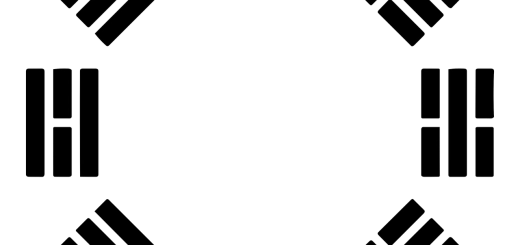Karma and Forgiveness

Looking for more amazing products? Check out our online store and explore our collection here! Happy shopping!
Before diving in, please note: This post is for informational purposes only. If you’d like to know more about how we approach topics, feel free to check out our friendly Disclaimer Page.
Hey there, amazing readers! 
We’re committed to delivering quality posts, and your support (even just sticking around despite the ads) means everything to us. So, bear with us, and thanks for helping us keep the good vibes rolling. Now, on to the fun stuff!
TRANSLATE BUTTON AT THE END OF THE ARTICLE
A Quick Overview
Karma and forgiveness are two intertwined concepts that play a significant role in shaping our lives and interactions with others.
Understanding how karma operates can provide insights into the consequences of our actions, while forgiveness offers a pathway to release resentment and heal past wounds.
In this article, we will delve into the intricate relationship between karma and forgiveness, exploring how these principles influence our decisions, relationships, and overall well-being.
By examining the role of forgiveness in breaking the cycle of karma, we can learn how to cultivate compassion, let go of negativity, and create a brighter future for ourselves and those around us.
Understanding Karma: What Goes Around Comes Around
Karma is a core belief in many Eastern philosophies, emphasizing the idea that our actions have consequences that reverberate through our lives.
The principle of karma suggests that the energy we put out into the world will eventually come back to us, whether in this lifetime or the next.
This concept underscores the interconnectedness of all beings and the importance of acting with mindfulness and compassion.
By understanding karma, we can become more aware of the impact of our thoughts, words, and deeds on ourselves and others.
The Concept of Karma in Different Cultures
While karma is commonly associated with Hinduism and Buddhism, variations of this concept can be found in numerous cultures and belief systems worldwide.
In Jainism, karma is seen as a subtle matter that adheres to the soul and influences future rebirths.
In Sikhism, karma is viewed as the law of cause and effect, shaping one’s destiny based on past actions.
Even in Western philosophies, echoes of karma can be seen in the idea of "you reap what you sow," emphasizing personal responsibility and accountability.
Across diverse cultures, the concept of karma serves as a moral compass, guiding individuals towards righteous behavior and ethical living.
How Karma Influences Our Actions and Decisions
The belief in karma can have a profound impact on how we navigate our lives and make choices.
Knowing that our actions will have repercussions, we may strive to act with integrity, kindness, and empathy towards others.
The awareness of karma can serve as a deterrent against harmful behavior, prompting us to consider the long-term consequences of our actions.
By acknowledging the power of karma, we can cultivate a sense of accountability and strive to create positive ripples in the world around us.
Ultimately, karma reminds us that every choice we make has the potential to shape our destiny.
The Role of Forgiveness in Breaking the Cycle of Karma
Forgiveness plays a crucial role in breaking the cycle of karma by allowing us to release negative energy and move forward with a clean slate.
When we hold onto grudges or resentments, we create karmic imbalances that can perpetuate cycles of suffering and discord.
By practicing forgiveness, we can free ourselves from the burden of past grievances and open our hearts to healing and transformation.
Forgiveness is not only a gift we give to others but also a powerful tool for self-liberation and growth.
By letting go of resentment, we can break the chains of negative karma and cultivate a sense of peace and harmony within ourselves.
Forgiveness as a Tool for Personal Growth and Healing
Forgiveness is a transformative practice that can lead to profound personal growth and healing.
When we forgive others for their transgressions, we release ourselves from the emotional weight of anger, bitterness, and resentment.
By choosing forgiveness, we empower ourselves to let go of the past and embrace a future filled with compassion and understanding.
Forgiveness allows us to reclaim our power and agency, freeing ourselves from the grip of negative emotions that can hinder our well-being.
Through the act of forgiveness, we can foster resilience, empathy, and inner peace, paving the way for profound self-transformation.
Letting Go of Resentment: The Power of Forgiveness
Resentment is like a poison that can slowly corrode our hearts and minds, trapping us in a cycle of negativity and despair.
Understand the Powerful Law of Karma and Its Impact – Explore Here!
When we hold onto grudges and grievances, we allow the past to dictate our present and future, limiting our capacity for growth and happiness.
Forgiveness offers a way out of this destructive cycle by inviting us to release the grip of anger and resentment.
By letting go of resentment, we create space for healing, reconciliation, and renewal.
Forgiveness is an act of self-love and compassion that can bring lightness and freedom to our souls, allowing us to move forward with grace and dignity.
Practicing Forgiveness to Improve Mental Health
Forgiveness is not only a moral virtue but also a powerful tool for improving mental health and well-being.
Holding onto grudges and resentment can have detrimental effects on our psychological and emotional state, leading to stress, anxiety, and depression.
By practicing forgiveness, we can reduce negative emotions, increase positive feelings, and enhance our overall mental resilience.
Forgiveness can foster a sense of inner peace, acceptance, and emotional balance, promoting psychological healing and growth.
Through the practice of forgiveness, we can cultivate a more compassionate and forgiving attitude towards ourselves and others, nurturing our mental health and overall sense of well-being.
How Forgiveness Can Lead to Positive Karma
Forgiveness has the potential to generate positive karma by creating a ripple effect of compassion, healing, and reconciliation.
When we choose to forgive others for their mistakes or wrongdoings, we break the cycle of retaliation and discord, paving the way for greater understanding and harmony.
By extending forgiveness to those who have harmed us, we not only free ourselves from the burden of resentment but also create an opportunity for mutual growth and transformation.
Forgiveness is a powerful act of grace that can set in motion a chain reaction of positive energy and goodwill, fostering a more compassionate and interconnected world.
Through the practice of forgiveness, we can sow the seeds of positive karma and contribute to a more harmonious and loving collective consciousness.
The Connection Between Karma and Self-Forgiveness
Just as forgiveness towards others can break the cycle of negative karma, self-forgiveness is equally essential for personal growth and transformation.
When we harbor guilt, shame, or self-condemnation, we create internal imbalances that can perpetuate cycles of suffering and self-sabotage.
By practicing self-forgiveness, we can release ourselves from the grip of past mistakes and embrace a future filled with self-compassion and self-acceptance.
Self-forgiveness is a profound act of self-love and healing that allows us to reclaim our worthiness and inner peace.
Through the practice of self-forgiveness, we can cultivate a deeper sense of self-awareness, resilience, and authenticity, paving the way for profound personal transformation.
Breaking the Cycle of Negative Karma Through Forgiveness
Breaking the cycle of negative karma requires a willingness to let go of past grievances, release attachment to outcomes, and embrace the transformative power of forgiveness.
When we hold onto anger, resentment, and bitterness, we create energetic blocks that can impede our growth and evolution.
By choosing forgiveness, we can dissolve these barriers, clear the path for healing, and break free from the chains of karmic conditioning.
Forgiveness is a potent elixir that can transmute negative energy into positive vibrations, leading to a profound shift in consciousness and perception.
Through the practice of forgiveness, we can disrupt harmful patterns, liberate ourselves from the past, and create a more harmonious and joyful present.
Karma and Forgiveness: Finding Peace and Closure
The interplay between karma and forgiveness offers a pathway to finding peace, closure, and reconciliation in our lives.
When we acknowledge the karmic implications of our actions and choices, we become more attuned to the interconnectedness of all beings and the universal laws of cause and effect.
By practicing forgiveness, we can release ourselves from the burdens of the past, heal old wounds, and create space for renewal and growth.
Forgiveness is a bridge that connects us to our inherent capacity for compassion, empathy, and understanding, fostering a sense of unity and oneness with all creation.
Through the harmonious interplay of karma and forgiveness, we can navigate the complexities of life with grace, wisdom, and love.
Cultivating Forgiveness to Create a Brighter Future
Cultivating forgiveness is a transformative practice that can lead to a brighter future filled with peace, joy, and abundance.
When we choose forgiveness over resentment, we open ourselves to the infinite possibilities of healing, growth, and renewal.
Forgiveness is a conscious choice to let go of the past, release ourselves from the grip of negative emotions, and embrace a future guided by love and compassion.
By cultivating forgiveness, we can sow the seeds of positive karma, create deeper connections with others, and contribute to a more harmonious and compassionate world.
Through the power of forgiveness, we can unlock the secrets of our hearts, unveil the light within, and radiate the essence of our true nature in the world.
Conclusion
In conclusion, karma and forgiveness are intertwined principles that offer profound insights into the interconnected nature of our actions and choices.
By understanding the workings of karma and practicing forgiveness, we can break free from the cycles of negativity, heal past wounds, and create a brighter future for ourselves and others.
Forgiveness is a powerful tool for personal growth, healing, and transformation, leading to greater mental health, emotional well-being, and spiritual evolution.
Through the harmonious interplay of karma and forgiveness, we can find peace, closure, and reconciliation, paving the way for a more compassionate, loving, and harmonious world.
Embracing forgiveness as a way of life, we can cultivate a brighter future filled with joy, abundance, and interconnectedness with all beings.

The Enlightenment Journey is a remarkable collection of writings authored by a distinguished group of experts in the fields of spirituality, new age, and esoteric knowledge.
This anthology features a diverse assembly of well-experienced authors who bring their profound insights and credible perspectives to the forefront.
Each contributor possesses a wealth of knowledge and wisdom, making them authorities in their respective domains.
Together, they offer readers a transformative journey into the realms of spiritual growth, self-discovery, and esoteric enlightenment.
The Enlightenment Journey is a testament to the collective expertise of these luminaries, providing readers with a rich tapestry of ideas and information to illuminate their spiritual path.
Our Diverse Expertise
Understand the Powerful Law of Karma and Its Impact – Explore Here!
While our primary focus is on spirituality and esotericism, we are equally passionate about exploring a wide range of other topics and niches 

To ensure we provide the most accurate and valuable insights, we collaborate with trusted experts in their respective domains 
Our blog originally focused on spirituality and metaphysics, but we’ve since expanded to cover a wide range of niches. Don’t worry—we continue to publish a lot of articles on spirituality! Frequently visit our blog to explore our diverse content and stay tuned for more insightful reads.
Hey there, amazing reader! 
Check out our store here and take a peek at some of our featured products below! Thanks for being awesome!














